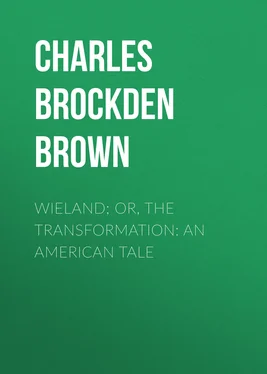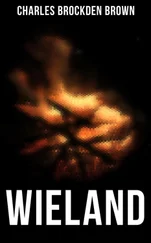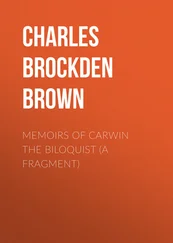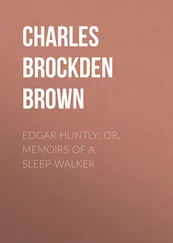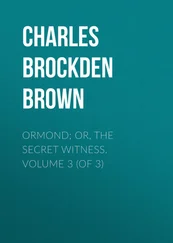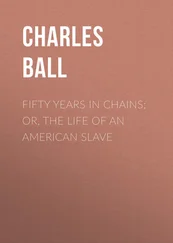Charles Brown - Wieland; Or, The Transformation - An American Tale
Здесь есть возможность читать онлайн «Charles Brown - Wieland; Or, The Transformation - An American Tale» — ознакомительный отрывок электронной книги совершенно бесплатно, а после прочтения отрывка купить полную версию. В некоторых случаях можно слушать аудио, скачать через торрент в формате fb2 и присутствует краткое содержание. Жанр: foreign_prose, foreign_antique, на английском языке. Описание произведения, (предисловие) а так же отзывы посетителей доступны на портале библиотеки ЛибКат.
- Название:Wieland; Or, The Transformation: An American Tale
- Автор:
- Жанр:
- Год:неизвестен
- ISBN:нет данных
- Рейтинг книги:3 / 5. Голосов: 1
-
Избранное:Добавить в избранное
- Отзывы:
-
Ваша оценка:
- 60
- 1
- 2
- 3
- 4
- 5
Wieland; Or, The Transformation: An American Tale: краткое содержание, описание и аннотация
Предлагаем к чтению аннотацию, описание, краткое содержание или предисловие (зависит от того, что написал сам автор книги «Wieland; Or, The Transformation: An American Tale»). Если вы не нашли необходимую информацию о книге — напишите в комментариях, мы постараемся отыскать её.
Wieland; Or, The Transformation: An American Tale — читать онлайн ознакомительный отрывок
Ниже представлен текст книги, разбитый по страницам. Система сохранения места последней прочитанной страницы, позволяет с удобством читать онлайн бесплатно книгу «Wieland; Or, The Transformation: An American Tale», без необходимости каждый раз заново искать на чём Вы остановились. Поставьте закладку, и сможете в любой момент перейти на страницу, на которой закончили чтение.
Интервал:
Закладка:
I was not without hopes of prevailing on her father entirely to relinquish this unwelcome design. Meanwhile, he pursued his travels through the southern colonies, and his daughter continued with us. Louisa and my brother frequently received letters from him, which indicated a mind of no common order. They were filled with amusing details, and profound reflections. While here, he often partook of our evening conversations at the temple; and since his departure, his correspondence had frequently supplied us with topics of discourse.
One afternoon in May, the blandness of the air, and brightness of the verdure, induced us to assemble, earlier than usual, in the temple. We females were busy at the needle, while my brother and Pleyel were bandying quotations and syllogisms. The point discussed was the merit of the oration for Cluentius, as descriptive, first, of the genius of the speaker; and, secondly, of the manners of the times. Pleyel laboured to extenuate both these species of merit, and tasked his ingenuity, to shew that the orator had embraced a bad cause; or, at least, a doubtful one. He urged, that to rely on the exaggerations of an advocate, or to make the picture of a single family a model from which to sketch the condition of a nation, was absurd. The controversy was suddenly diverted into a new channel, by a misquotation. Pleyel accused his companion of saying "polliciatur" when he should have said "polliceretur." Nothing would decide the contest, but an appeal to the volume. My brother was returning to the house for this purpose, when a servant met him with a letter from Major Stuart. He immediately returned to read it in our company.
Besides affectionate compliments to us, and paternal benedictions on Louisa, his letter contained a description of a waterfall on the Monongahela. A sudden gust of rain falling, we were compelled to remove to the house. The storm passed away, and a radiant moon-light succeeded. There was no motion to resume our seats in the temple. We therefore remained where we were, and engaged in sprightly conversation. The letter lately received naturally suggested the topic. A parallel was drawn between the cataract there described, and one which Pleyel had discovered among the Alps of Glarus. In the state of the former, some particular was mentioned, the truth of which was questionable. To settle the dispute which thence arose, it was proposed to have recourse to the letter. My brother searched for it in his pocket. It was no where to be found. At length, he remembered to have left it in the temple, and he determined to go in search of it. His wife, Pleyel, Louisa, and myself, remained where we were.
In a few minutes he returned. I was somewhat interested in the dispute, and was therefore impatient for his return; yet, as I heard him ascending the stairs, I could not but remark, that he had executed his intention with remarkable dispatch. My eyes were fixed upon him on his entrance. Methought he brought with him looks considerably different from those with which he departed. Wonder, and a slight portion of anxiety were mingled in them. His eyes seemed to be in search of some object. They passed quickly from one person to another, till they rested on his wife. She was seated in a careless attitude on the sofa, in the same spot as before. She had the same muslin in her hand, by which her attention was chiefly engrossed.
The moment he saw her, his perplexity visibly increased. He quietly seated himself, and fixing his eyes on the floor, appeared to be absorbed in meditation. These singularities suspended the inquiry which I was preparing to make respecting the letter. In a short time, the company relinquished the subject which engaged them, and directed their attention to Wieland. They thought that he only waited for a pause in the discourse, to produce the letter. The pause was uninterrupted by him. At length Pleyel said, "Well, I suppose you have found the letter."
"No," said he, without any abatement of his gravity, and looking stedfastly at his wife, "I did not mount the hill."—"Why not?"—"Catharine, have you not moved from that spot since I left the room?"—She was affected with the solemnity of his manner, and laying down her work, answered in a tone of surprise, "No; Why do you ask that question?"—His eyes were again fixed upon the floor, and he did not immediately answer. At length, he said, looking round upon us, "Is it true that Catharine did not follow me to the hill? That she did not just now enter the room?"—We assured him, with one voice, that she had not been absent for a moment, and inquired into the motive of his questions.
"Your assurances," said he, "are solemn and unanimous; and yet I must deny credit to your assertions, or disbelieve the testimony of my senses, which informed me, when I was half way up the hill, that Catharine was at the bottom."
We were confounded at this declaration. Pleyel rallied him with great levity on his behaviour. He listened to his friend with calmness, but without any relaxation of features.
"One thing," said he with emphasis, "is true; either I heard my wife's voice at the bottom of the hill, or I do not hear your voice at present."
"Truly," returned Pleyel, "it is a sad dilemma to which you have reduced yourself. Certain it is, if our eyes can give us certainty that your wife has been sitting in that spot during every moment of your absence. You have heard her voice, you say, upon the hill. In general, her voice, like her temper, is all softness. To be heard across the room, she is obliged to exert herself. While you were gone, if I mistake not, she did not utter a word. Clara and I had all the talk to ourselves. Still it may be that she held a whispering conference with you on the hill; but tell us the particulars."
"The conference," said he, "was short; and far from being carried on in a whisper. You know with what intention I left the house. Half way to the rock, the moon was for a moment hidden from us by a cloud. I never knew the air to be more bland and more calm. In this interval I glanced at the temple, and thought I saw a glimmering between the columns. It was so faint, that it would not perhaps have been visible, if the moon had not been shrowded. I looked again, but saw nothing. I never visit this building alone, or at night, without being reminded of the fate of my father. There was nothing wonderful in this appearance; yet it suggested something more than mere solitude and darkness in the same place would have done.
"I kept on my way. The images that haunted me were solemn; and I entertained an imperfect curiosity, but no fear, as to the nature of this object. I had ascended the hill little more than half way, when a voice called me from behind. The accents were clear, distinct, powerful, and were uttered, as I fully believed, by my wife. Her voice is not commonly so loud. She has seldom occasion to exert it, but, nevertheless, I have sometimes heard her call with force and eagerness. If my ear was not deceived, it was her voice which I heard.
"Stop, go no further. There is danger in your path." The suddenness and unexpectedness of this warning, the tone of alarm with which it was given, and, above all, the persuasion that it was my wife who spoke, were enough to disconcert and make me pause. I turned and listened to assure myself that I was not mistaken. The deepest silence succeeded. At length, I spoke in my turn. Who calls? is it you, Catharine? I stopped and presently received an answer. "Yes, it is I; go not up; return instantly; you are wanted at the house." Still the voice was Catharine's, and still it proceeded from the foot of the stairs.
"What could I do? The warning was mysterious. To be uttered by Catharine at a place, and on an occasion like these, enhanced the mystery. I could do nothing but obey. Accordingly, I trod back my steps, expecting that she waited for me at the bottom of the hill. When I reached the bottom, no one was visible. The moon-light was once more universal and brilliant, and yet, as far as I could see no human or moving figure was discernible. If she had returned to the house, she must have used wondrous expedition to have passed already beyond the reach of my eye. I exerted my voice, but in vain. To my repeated exclamations, no answer was returned.
Читать дальшеИнтервал:
Закладка:
Похожие книги на «Wieland; Or, The Transformation: An American Tale»
Представляем Вашему вниманию похожие книги на «Wieland; Or, The Transformation: An American Tale» списком для выбора. Мы отобрали схожую по названию и смыслу литературу в надежде предоставить читателям больше вариантов отыскать новые, интересные, ещё непрочитанные произведения.
Обсуждение, отзывы о книге «Wieland; Or, The Transformation: An American Tale» и просто собственные мнения читателей. Оставьте ваши комментарии, напишите, что Вы думаете о произведении, его смысле или главных героях. Укажите что конкретно понравилось, а что нет, и почему Вы так считаете.
